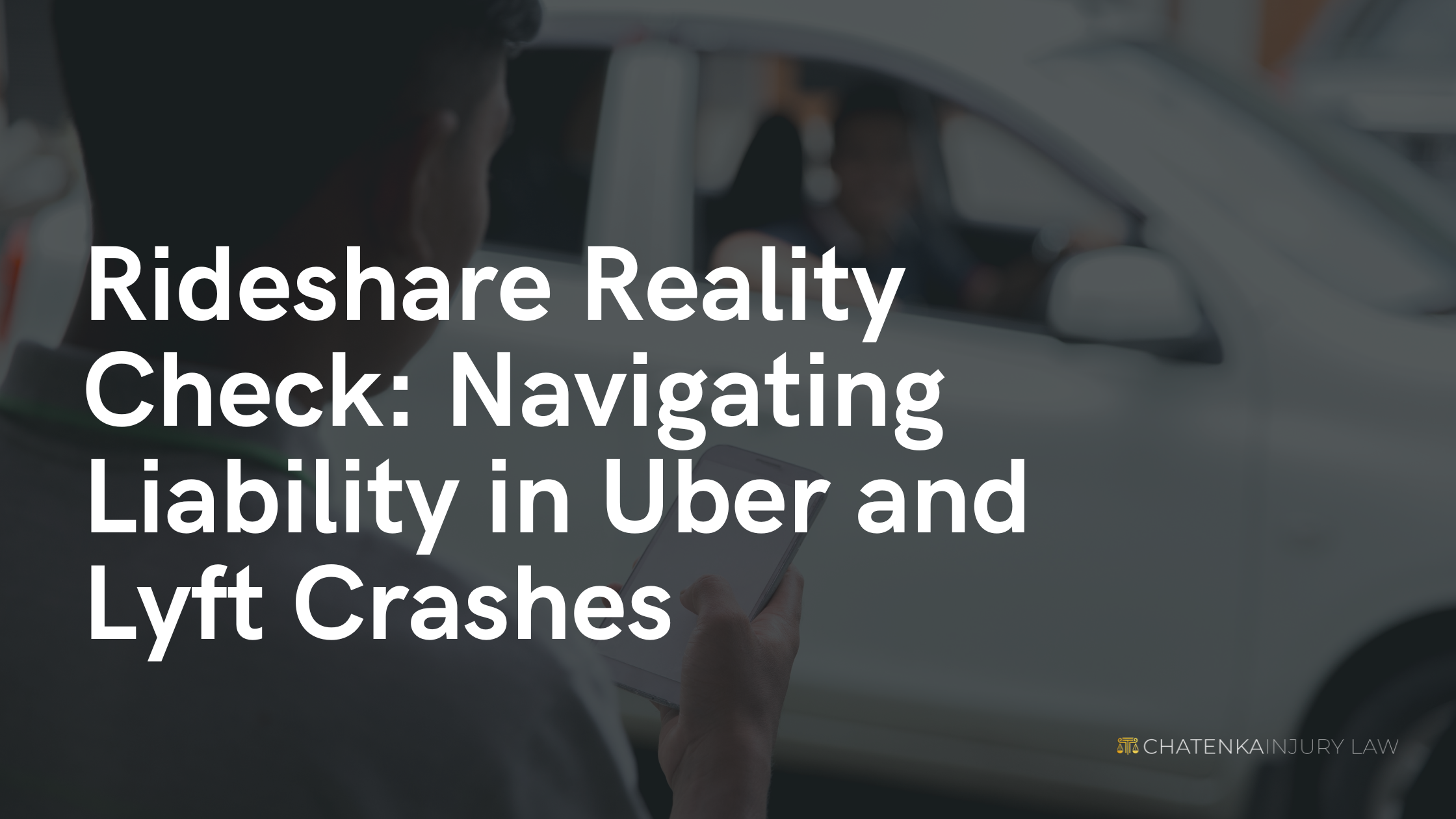Rideshare Reality Check: Navigating Liability in Uber and Lyft Crashes
The convenience of ridesharing services like Uber and Lyft has transformed how we get around. With just a few taps on our smartphones, we can summon a ride to our doorstep within minutes. However, along with this convenience comes the risk of accidents and injuries. Navigating the legal landscape of rideshare accidents can be complex, but understanding liability is essential for ensuring justice and compensation for those affected. In this article, we'll explore the intricacies of liability in Uber and Lyft crashes and provide guidance for passengers, drivers, and pedestrians involved in such incidents.
Understanding Rideshare Liability
Rideshare companies like Uber and Lyft operate under a unique legal framework. When a rideshare driver is on the clock, transporting passengers or en route to pick them up, they are typically covered by the company's insurance policy. This coverage includes liability for bodily injury and property damage caused by the driver's negligence.
Determining Fault
In rideshare accidents, determining fault can be complex due to multiple parties involved. Liability may fall on the rideshare driver, another motorist, or a combination of both. Factors such as driver negligence, road conditions, and third-party actions all play a role in determining fault.
Passenger Rights and Compensation
Passengers injured in rideshare accidents are entitled to compensation for their injuries and damages. Whether you were in the rideshare vehicle or another vehicle involved in the crash, you have the right to seek compensation for medical expenses, lost wages, pain and suffering, and other damages. It's crucial to document the accident scene, gather witness statements, and seek medical attention promptly to strengthen your claim.
Driver Responsibilities and Protections
Rideshare drivers also have rights and responsibilities in the event of an accident. It's essential to report the accident to the rideshare company and cooperate with their investigation. Drivers may be covered by the rideshare company's insurance policy, but coverage may vary depending on whether they were actively transporting passengers or in between rides.
Pedestrian Safety Concerns
Pedestrians are also at risk of being involved in rideshare accidents, whether as bystanders or while using crosswalks. In the event of a collision with a rideshare vehicle, pedestrians may sustain severe injuries. Understanding your rights as a pedestrian and seeking legal representation can help you navigate the complexities of liability and pursue compensation for your injuries.
Rideshare accidents can have serious consequences for all parties involved. Navigating liability in Uber and Lyft crashes requires a thorough understanding of the legal framework and the rights of passengers, drivers, and pedestrians. If you've been injured in a rideshare accident, seeking legal guidance from an experienced personal injury attorney is essential for protecting your rights and securing the compensation you deserve. Remember, safety should always be the top priority when using rideshare services, but knowing your rights can provide peace of mind in the event of an accident.


